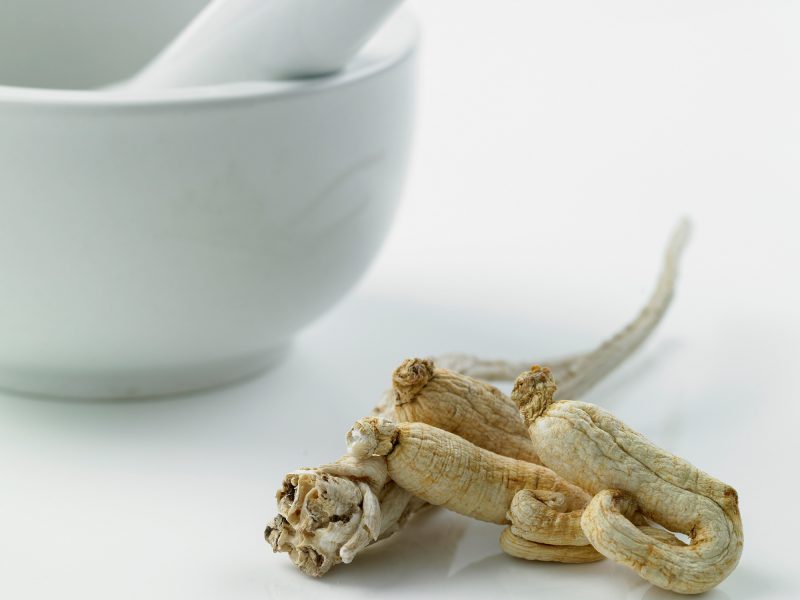Mark A. Stengler, NMD, a naturopathic physician and founder of The Stengler Center for Integrative Medicine in Encinitas, California (MarkStengler.com).
Published Date: June 1, 2018 Publication: Bottom Line Health
More than one-third of American adults reach for vitamins, herbs or other natural medicines when they have colds or other routine (and hopefully mild) health problems. Similar remedies can help when you have cancer.
To learn more about the best and safest ways to use natural therapies—also known as complementary and alternative medicine (CAM)—to fight cancer and its complications, Bottom Line Health spoke with Mark A. Stengler, NMD, a naturopathic physician who treats cancer patients.
HOW CAM CAN WORK
Research has shown that many so-called “alternative” treatments can enhance the effects of conventional cancer care such as surgery, radiation or chemotherapy…reduce treatment side effects…and possibly improve survival.
This type of integrative care doesn’t replace conventional cancer treatments. Rather, with the guidance of a doctor, complementary therapies are added to a patient’s treatment plan.
Important: To ensure that the therapies described below would be appropriate for you, consult the Society for Integrative Oncology (IntegrativeOnc.org) to find an integrative oncologist near you…or check with The American Association of Naturopathic Physicians (Naturopathic.org) to locate a naturopathic doctor who also treats cancer patients.
Also: Be sure to ask the doctor you choose to be in touch with your oncologist. Here’s how CAM can help with problems that plague most cancer patients…
• Get relief from “chemo brain.” It’s estimated that three-quarters of cancer patients will experience some degree of mental cloudiness. Known as “chemo brain,” it can include mood swings, memory loss and mental fatigue. It eventually improves, but some patients will feel like they’re in a mental fog years after their treatments have ended.
What helps: The omega-3 fatty acids in fish oil supplements—a typical daily dose is 1,000 mg total of eicosapentaenoic acid (EPA) and docosahexaenoic acid (DHA) combined—help regulate acetylcholine, a neurotransmitter that increases nerve growth factor and improves memory as well as energy levels.
The omega-3s also increase the effectiveness of 5-fluorouracil and other chemotherapy drugs, according to a study published in Clinical Nutrition Research. In research published in Cancer, lung cancer patients who took fish oil along with chemotherapy had a greater one-year survival rate than those who didn’t take the supplements.
Note: Fish oil may cause stomach upset in some patients, along with bleeding in those who are taking anticoagulant medications such as warfarin (Coumadin), apixaban (Eliquis) and rivaroxaban (Xarelto).
• Boost energy levels. Ginseng is one of the more effective supplements for cancer patients. A number of studies have shown that it reduces treatment-related side effects, including weakness and fatigue. A double-blind study in Journal of the National Cancer Institute found that patients who took ginseng had less fatigue than those given placebos.
My advice: The American form of ginseng (Panax quinquefolius) is more effective than the Asian form. Typical dose: 1,300 mg to 2,000 mg daily. It rarely causes side effects, although it may lower blood sugar in those with diabetes.
Also helpful: Glutathione, a “super antioxidant” that can be combined with chemotherapy to reduce toxin-related fatigue and other side effects. It’s usually given in an IV solution. Side effects are unlikely, but it may interfere with some chemotherapy drugs. Be sure to consult an integrative oncologist to see whether you will/won’t benefit from glutathione.
• Improve immune response. Turkey tail is one of the best–studied medicinal mushrooms. Available in capsule form, the supplement has chemical compounds (beta–glucans) that stimulate many aspects of the immune response, including antibody activity—important for inducing the death of cancer cells.
Impressive research: A study published in Cancer Immunology and Immunotherapy found that postsurgical remissions in colorectal cancer patients were twice as common in those who were given turkey tail. Typical dose: 3,000 mg daily. Side effects are unlikely.
A NUTRITIONAL BOOST
Conventional oncologists receive little training in nutrition, but it’s a critical issue for cancer patients. One study found that 91% of cancer patients had nutritional impairments, and 9% were seriously malnourished. Research shows that malnutrition contributes directly or indirectly to a significant number of cancer deaths due to poor appetite and the disease process of advanced cancer.
Loss of appetite is a major cause of malnutrition and muscle loss (cachexia). I advise patients who are losing weight to address these problems by getting more calories.
With every meal, include high-fat foods such as olive oil, coconut oil, avocado, nuts and seeds. A 10-year study, published in Archives of Internal Medicine, looked at more than 380,000 adults and found that a Mediterranean-style diet, which is high in olive oil and other healthy fats, reduced cancer deaths in men by 17% and 12% in women.
Also helpful: Protein shakes. They can provide the extra protein that’s critical for cancer patients. Up to 80% of those with advanced cancer experience muscle loss. Protein shakes can help reverse it. Best option: Ready-made whey protein or pea protein shakes—both are nutritious, have 5 g of sugar or less per serving and are readily available in health-food stores.
My advice: Get 1 g to 1.2 g of protein per kilogram (2.2 pounds) of body weight daily. This means that someone who weighs 150 pounds will need about 68 g to 82 g of protein daily. You can get that much from two or three servings of a typical whey protein beverage, which comes ready-mixed or in powdered form. Caution: If you have moderate or severe kidney disease, check with your doctor for advice on your protein intake.
https://bottomlineinc.com/health/cancer-treatment/when-fighting-cancer-integrative-care
